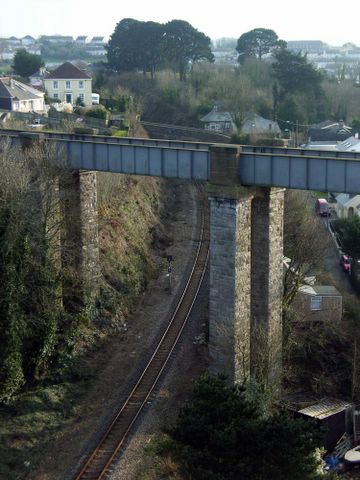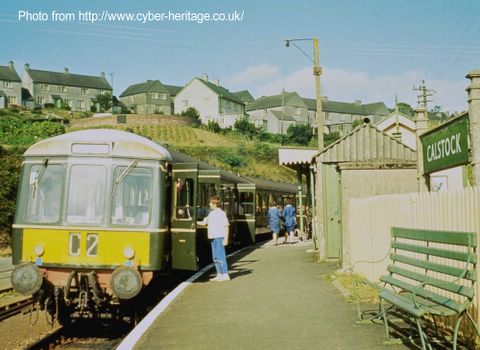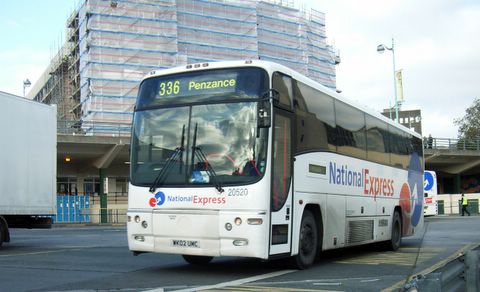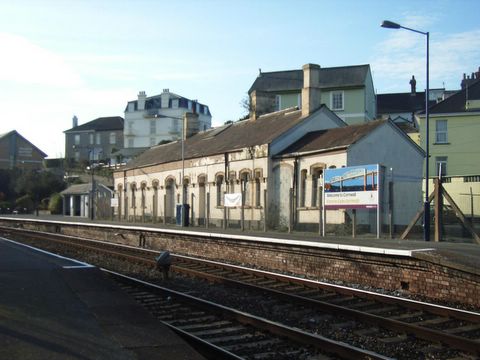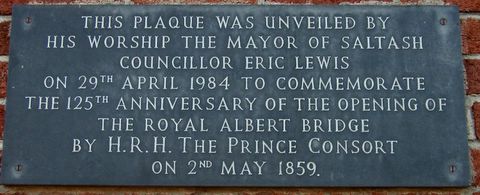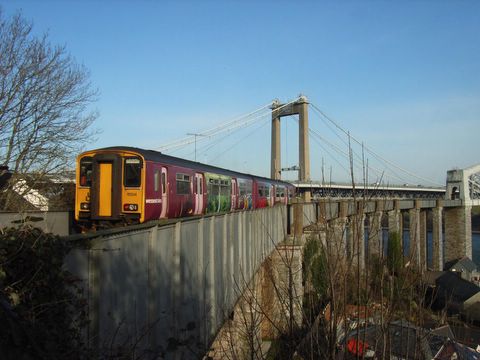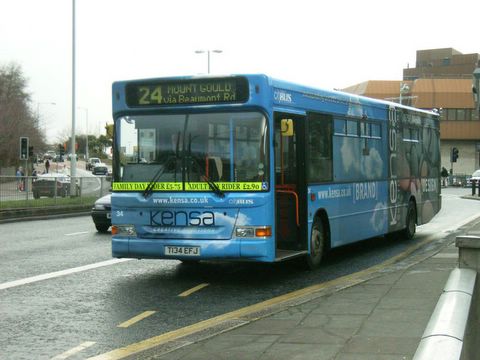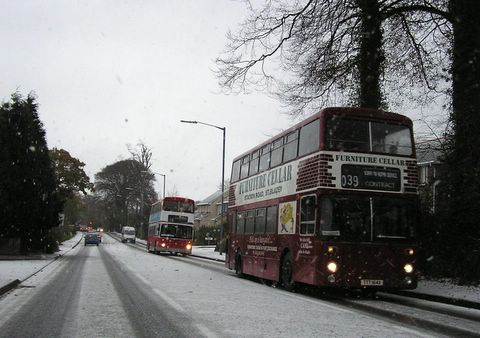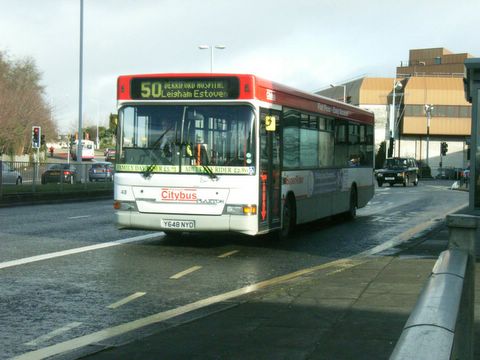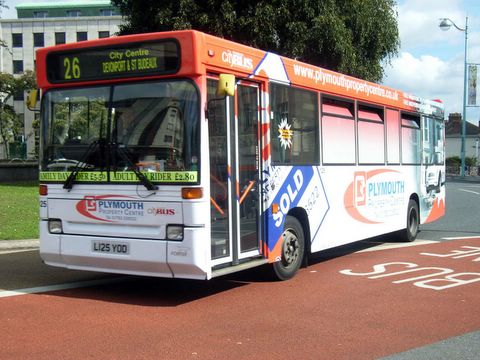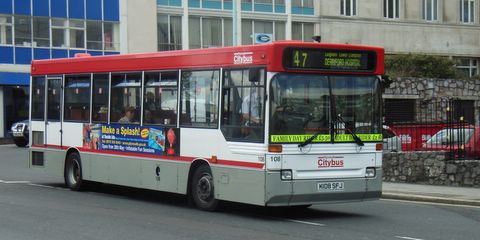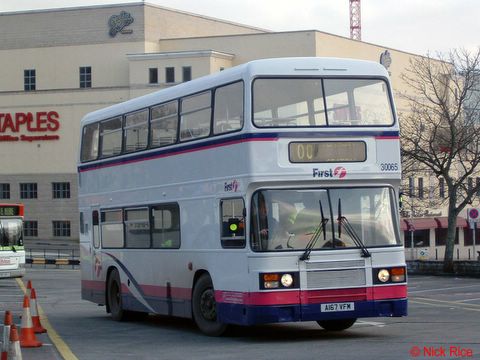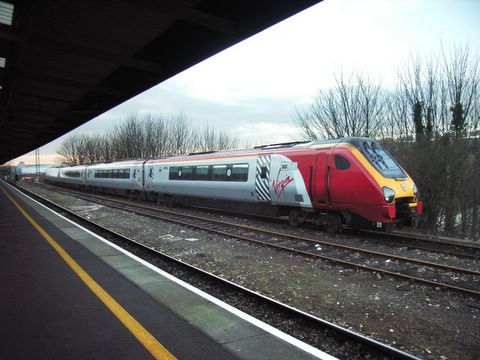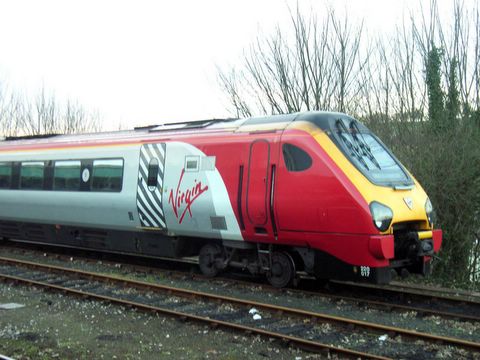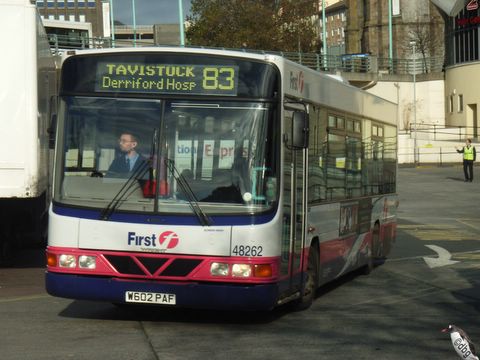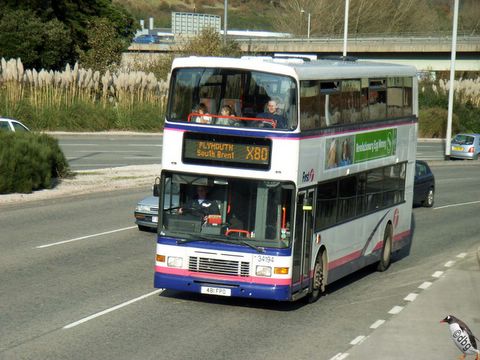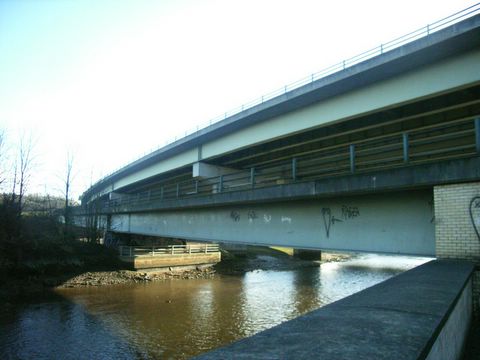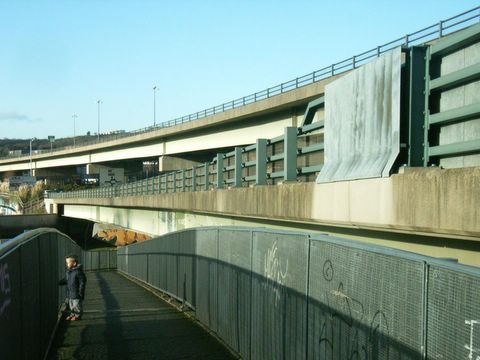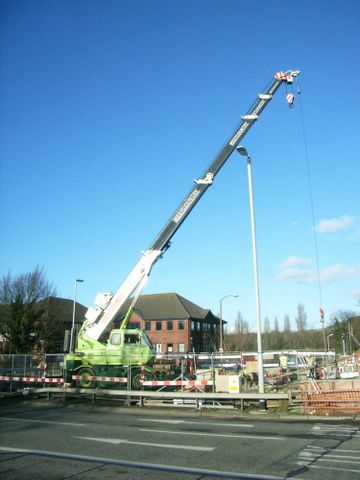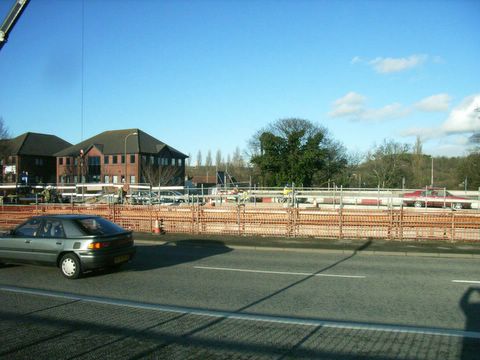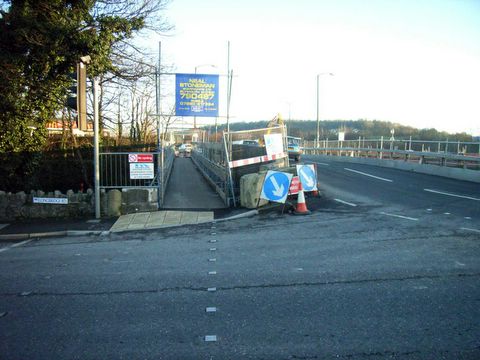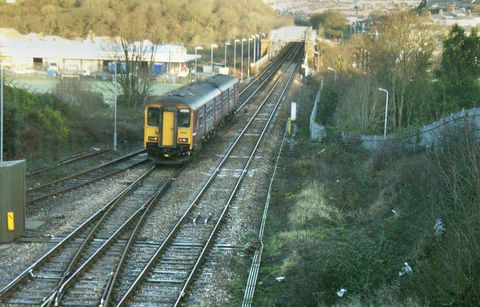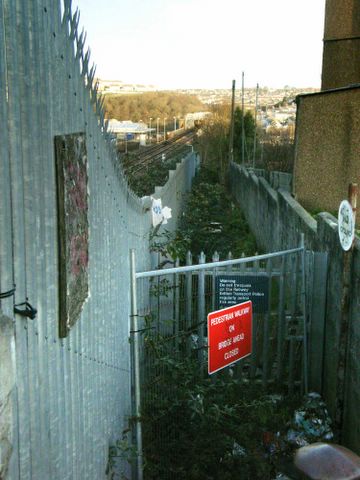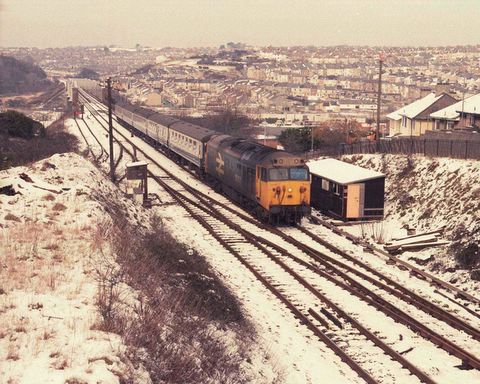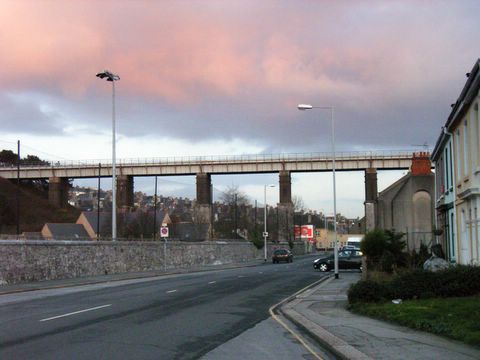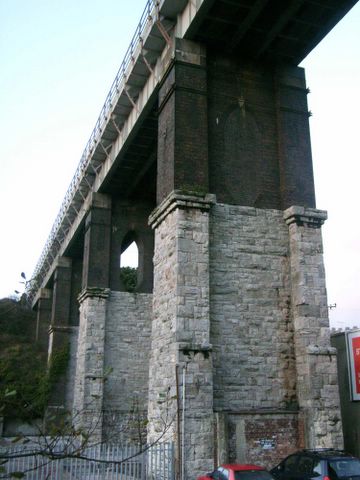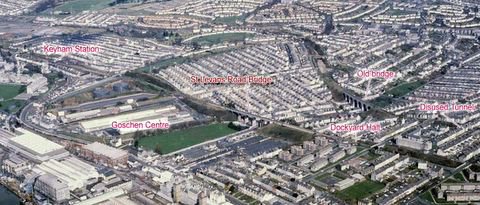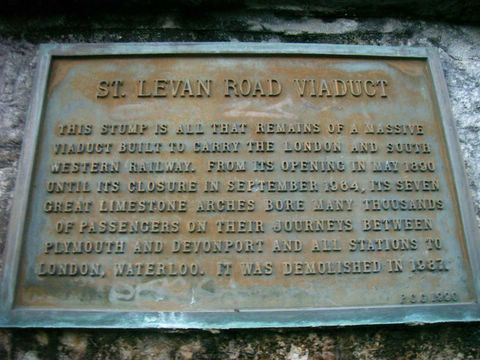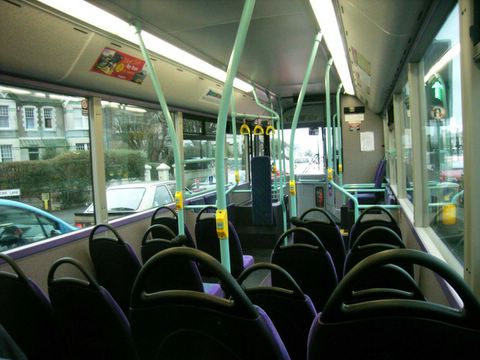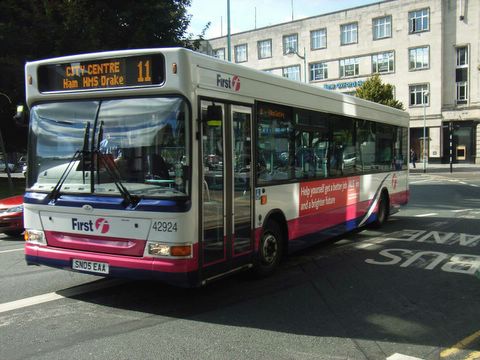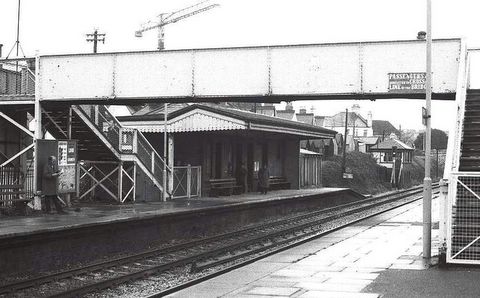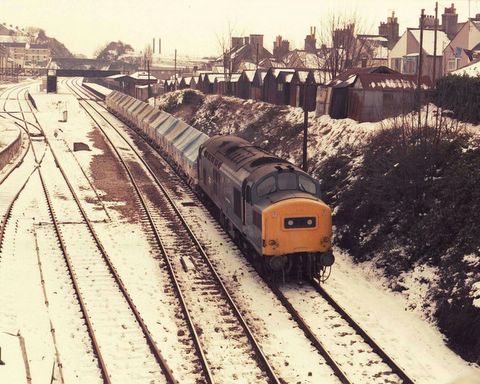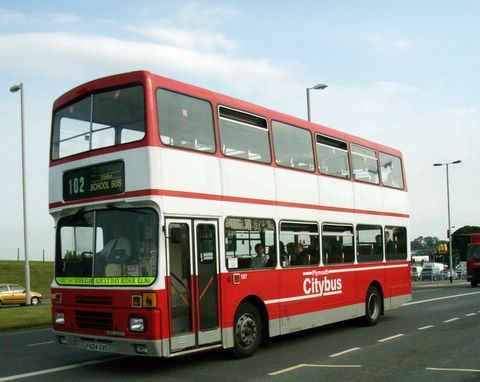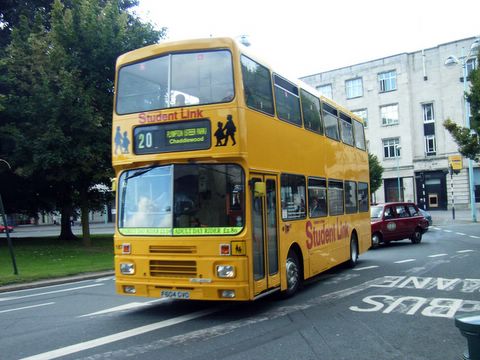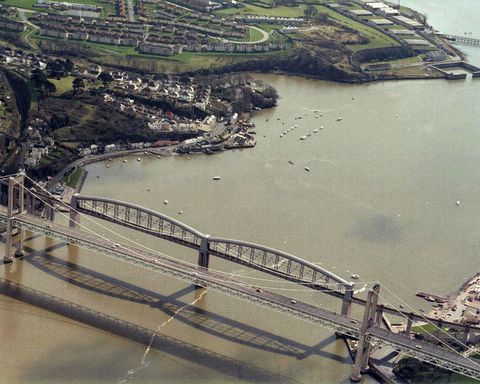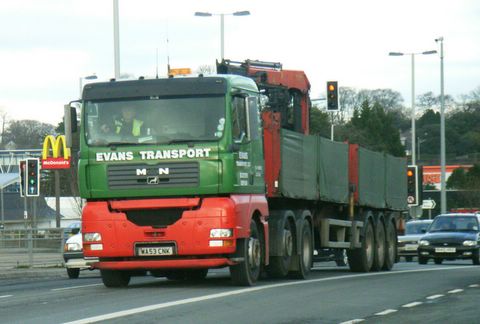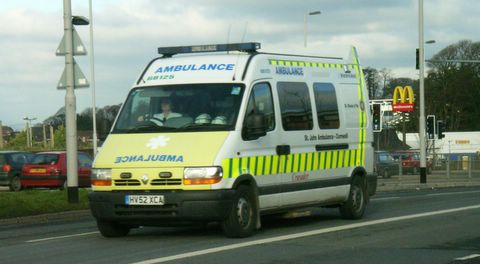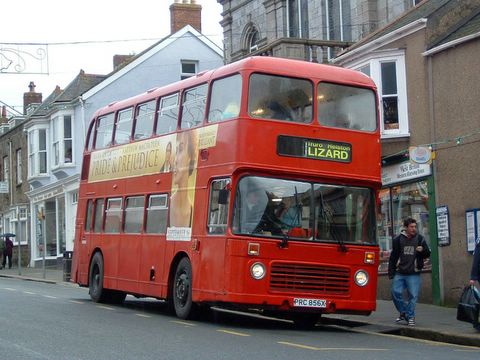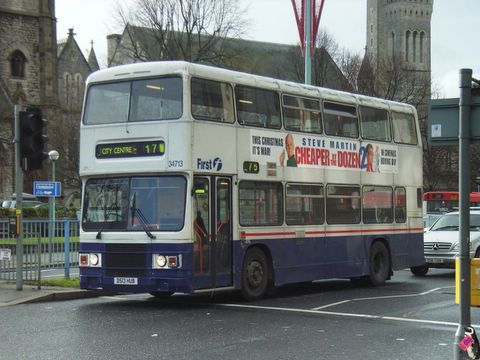There is only one story I can lead on tonight.
12:00 - 03 January 2006
Traffic congestion in Plymouth has been caused by the city council, according to a highly critical Government report.And the authority has also done little to tackle existing and emerging snarl-ups, the document said.The criticisms come in a blunt assessment of the council's 192-page draft Local Transport Plan 2, covering 2006 to 2011, which puts it in the worst seven plans from 82 submitted nationally.They have led to calls for the resignation of cabinet transport member Cllr Sue Dann, and accusations that the Labour Party wants an excuse to bring in a congestion charge.The Government Office for the South West (GOSW) assessment of Plymouth's provisional plan said: "Where a summary of congestion hotspots is provided, the plan states that the authority has created many of the problems itself. The plan does not show how this issue is to be resolved."The report doesn't go into detail but refers to a table in the draft plan, completed last July, which lists hotspots and 'activities affecting congestion'.On the list is Royal Parade where lack of space at bus stops and people using pedestrian crossings are slowing buses and leading to 'vehicle-pedestrian tension'.The Royal Parade crossing also affects peak period traffic on the city centre ring road and Notte Street, according to the draft plan.And in Mutley Plain congestion is related to the 'high numbers' of pedestrians crossing and illegal parking'.Other congestion hotspots include Tavistock Road and North Hill, where major developments are under way.GOSW has now told the council its provisional plan 'needs substantial improvement'.It called the entire plan 'disjointed' and said it is not clear how it will link with the Mackay Vision for the development of Plymouth.The council now must provide an amended and improved plan by the end of March if it is not to get an overall 'weak' rating.Millions of pounds of funding depend on the Government's ultimate assessment of the plan's quality and the council's ability to deliver it.But already the Integrated Transport Block grant Plymouth will receive for 2006/7 has been reduced by five per cent to £3.085 million.Cllr Dann was approached by the Herald but chose for the council's press office to issue a statement.The statement said: "We were aware some parts of the LTP2 submission needed further work but we honoured the statutory July deadline and since then have developed the document, including our targets and how we are going to deliver them."But Tory transport spokesman Cllr Kevin Wigens called for Cllr Dann's head and said the plan 'could not have been worse'.He said: "Of the many alarming aspects of this report, the one that concerns me and many other motorists, is the apparent acknowledgement by Plymouth City Council that it is responsible for much of the congestion in Plymouth."I would call upon Cllr Dann to consider her position."Lib Dem Cllr Lee Finn, who defected from Labour in July, accused the ruling party of wanting to create traffic bottlenecks to justify bringing in a congestion charge.This is even though, in March 2005, Cllr Dann said there were no council plans to introduce congestion charges.Cllr Finn said the draft plan would create a transport system which would 'cause economic catastrophe' by hampering businesses wanting to set up in Plymouth.He said: "It's a damning indictment of the way our transport infrastructure is viewed, planned and implemented."Taxifast boss John Preece called the assessment 'scathing' and wanted Cllr Dann to 'step down'.He said: "The council has not got a plan, it has got dreams."The transport system in this city is the biggest single factor to its economy - they have lost the plot."He added: "We need to get rid of at least 50 per cent of traffic lights to ease traffic flow."We have permitted the increase in bus lanes to the point where they become counter productive. They create bottlenecks."He called for a 'consultative committee' containing the police, RAC, AA and transport 'operators' to be set up.Don Allen, Plymouth and Cornwall co-ordinator for the transport and environmental pressure group Transport 2000, also thinks the council has caused congestion - by permitting development and removing the Royal Parade underpass.He said: "I'm not against pedestrian crossings as such, but they could have done that without filling in the underpass."He said building developments on the A386 and Drake's Circus had increased congestion, and predicted the same if developments happen at Sherford and Bretonside.Plymouth is not as congested as Exeter or Bristol, he said, but congestion is 'growing'.Mr Allen said the solution was 'encouraging people to use public transport'. He added: "One way to do that is by reducing the fares, not only for the over-60s but all people."Edmund King, director of the RAC Foundation, said traffic management, such as pedestrian crossings, could slow traffic, cause congestion and pollution and fail to enhance safety.He said: "It's a pipedream to think that putting in pedestrian crossings will deter vehicles - it will not."He said a balance needed to be struck but added: "Any city needs roads that move traffic - if not, a city dies."It seems that the planners in the city need to go back to the drawing board and work out which roads are for movement."Council staff are due to meet Government officials to discuss the plan. A revised version must be completed by the end of February so it can pass the council's committee system before the end of the financial year.After March the revised plan will be further assessed and that assessment will affect the council's bid for funds.A GOSW spokeswoman said the Government would look at how 'appropriate' and 'well-planned' proposed schemes are, and whether they provide 'value for taxpayers' money'. Although all local authorities would receive money, the rating a plan gets for being 'achievable, affordable, and value for money' 'can affect the settlement'.
The Government Office for the South West's assessment of Plymouth City Council's provisional Local Transport Plan 2 includes the following criticisms: The plan 'lacks a coherent strategy', is 'disjointed and contradicts itself'.The plan is supposed to link with the Mackay Vision for future development of Plymouth, but the assessment said: "It is not clear at this stage how the Mackay vision fits into the wider policy and planning context'. It said there needs to be 'sound evidence and analysis of that evidence' to show a transport strategy has been developed. The lack of a Mackay link is 'a considerable weakness throughout the whole of the plan'.In a section on opportunities and problems it is 'difficult to identify whether they are addressing a problem or maximising an opportunity'. Problems are 'too generic' and the final plan will need to use statistical information so 'particular measures' can resolve localised problems.A works programme is 'not related to the indicators and outcomes proposed'. This makes it difficult to allocate funds, the GOSW said, because 'few targets have been fully defined at this stage'.Passenger transport plans are 'undeliverable' and not supported by 'a realistic capital programme' because they were based on a £200 million bid for the 'Eastern Corridor' and were therefore 'high risk'.The GOSW has sought confirmation that the council is acting within the law after the authority admitted 'little existing revenue surplus from car parking is actually used for other transport projects'.
The full document can be found here
[No longer available 2008!](PDF). It makes very interesting reading indeed!
This is just the latest area in which Plymouth City Council has been rated as among the worse in the country. The report is pretty damning and shows the lack of real commitment to Transport in Plymouth and the many problems it faces - many of which it appears are actually the councils own fault anyway. You only have to look at what is happening elsewhere in Devon to see how poorly Plymouth is being served by its council. One cant help but wonder what area of the councils work will be rated as failing next.
